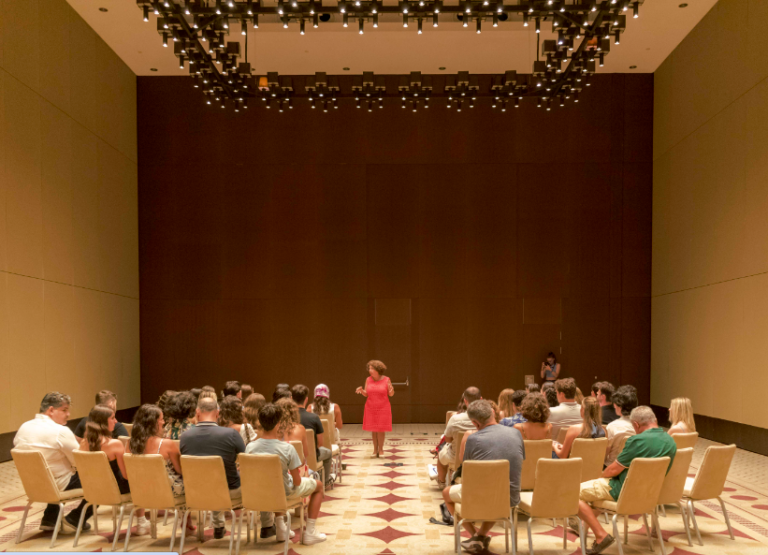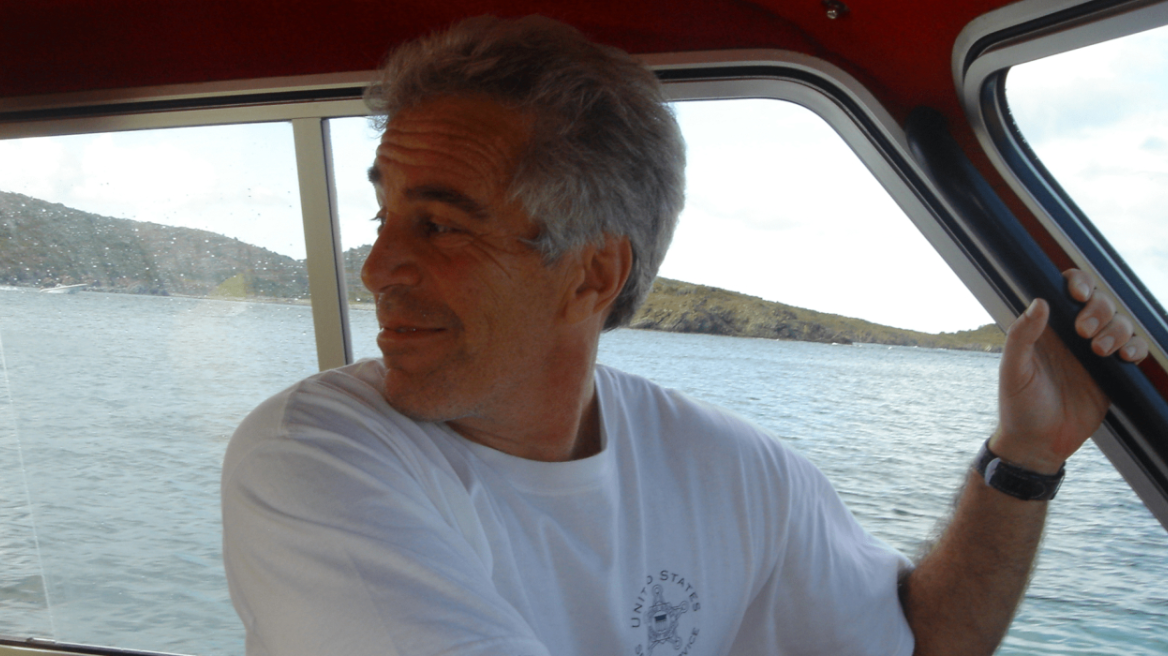The system of ancient Athenian justice was complex, considering it essentially included a combination of elected and appointed officials. What we know is that ancient Athens had over 6,000 judges. Today, the total number of judges (including prosecutors) in Greece is around 4,000 to 5,000.
This information captivated Petros Christeas, a diaspora Greek from Montreal, Canada. Mr. Christeas is in Greece these days to attend the summer language and culture classes organized by the Department of Philology at the University of the Peloponnese, in collaboration with the Pan-Messinian Federation of America and Canada.
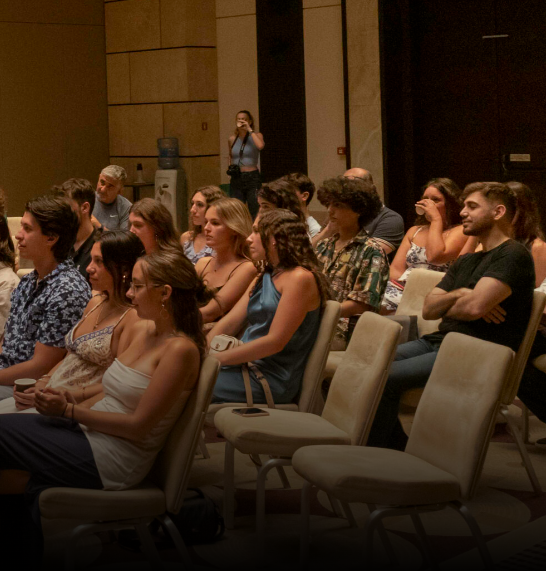
Summer School for Diaspora Greeks: They come not knowing the alphabet, they leave reading Seferis-1
With roots in Kalamata on his mother’s side and Tripoli on his father’s, he knows Greek relatively well, having attended a Greek primary school in Canada, followed by Saturday Greek school.
However, student life inevitably distanced him from his family nest and thus from engaging with the Greek language, resulting in him “losing” words in every phone call with his grandmother from Greece. “The last time I came to Greece was in 2019, so this year it feels like I’m returning home after quite some time,” he tells “K.”
Practicing his Greek constantly for the past two weeks and attending mandatory grammar and syntax classes every morning, he already feels confident enough to converse.

“We still have two full weeks of classes, but I’m really happy that I can now speak again with ease. Conversations with my grandmother and mother are already daily,” he says, laughing.
Not knowing even the alphabet
With this particular summer school for diaspora Greeks running for the past 16 years, with a break only during the pandemic, the scientific supervisor of the program and associate professor of the department, Eleni Volonaki, tells “K” that year after year it becomes clear that these classes are essential for the preservation of the Greek language, history, and culture on the other side of the world.
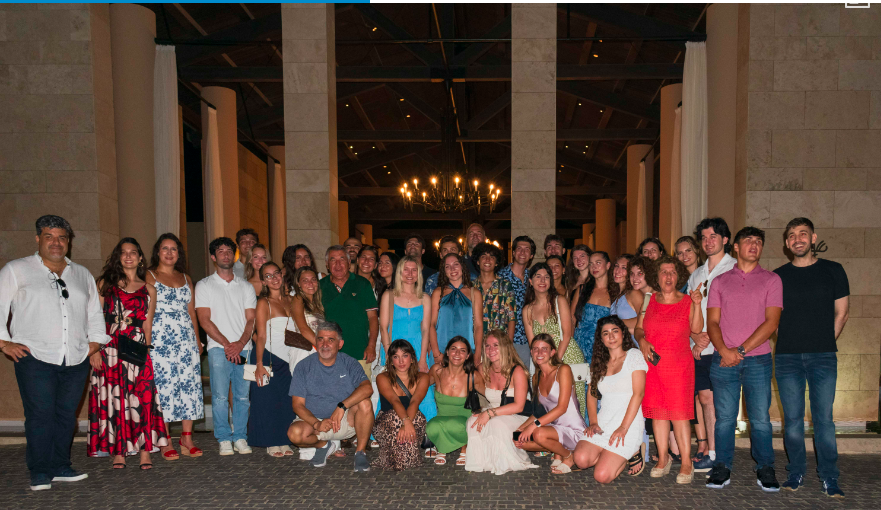
Summer School for Diaspora Greeks: They come not knowing the alphabet, they leave reading Seferis-2
The 34 diaspora students participated in this year’s summer school organized by the Department of Philology at the University of the Peloponnese in collaboration with the Pan-Messinian Federation of America and Canada.
As she explains, until 2010, children in the beginners’ class knew basic Greek, but in recent years, most students don’t even know the alphabet. “Since most of them are third-generation and their parents were also born and raised abroad, their only Greek practice is with their grandparents,” explains the professor.
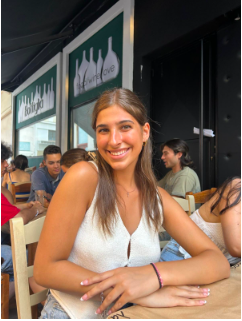
Lessons lasting a month, held daily at the University of the Peloponnese, focus mainly on learning the Greek language. However, this is done in many different ways. “We play rhetoric games, debate about democracy, and discuss whether democracy works effectively today or not. We watch movies and then discuss them in Greek, while the participants take traditional music classes and at the closing ceremony, they sing and dance,” notes Ms. Volonaki.
“We play rhetoric games, debate about democracy, and discuss whether democracy works effectively today or not.”
The classes also include literature and theater. “The students gradually manage to read Elytis and Seferis while writing their texts in Greek. A few years ago, we created an entire newspaper with articles on the Mediterranean diet,” she adds, highlighting that the language classes last 45 hours, the music classes 5 hours, and the history and literature classes 15 hours.
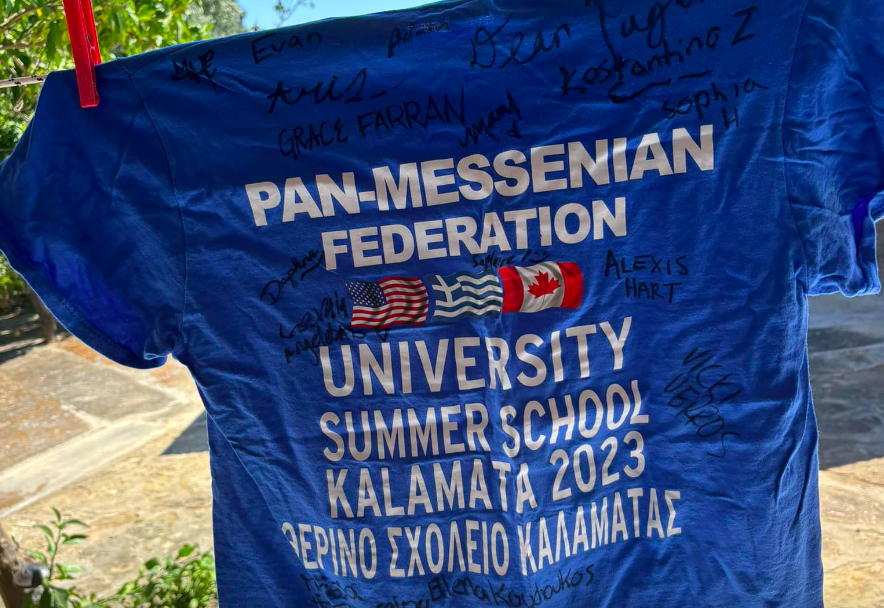
Summer School for Diaspora Greeks: They come not knowing the alphabet, they leave reading Seferis-3
The diaspora students take classes in Greek language, grammar, literature, history as well as traditional dances and music.
Desire to speak Greek comfortably
The desire of most students this year was for beginners to reach a very good level of writing in Greek, while advanced students aimed to speak Greek with ease.
Summer School for Diaspora Greeks: They come not knowing the alphabet, they leave reading Seferis-4
Katerina Papoutsaki, born in Vancouver, Canada, with roots in Samos and Crete, feels she has achieved the latter so far. Although she doesn’t speak Greek in Canada, returning to Greece in the summers helps her “refresh” her skills.
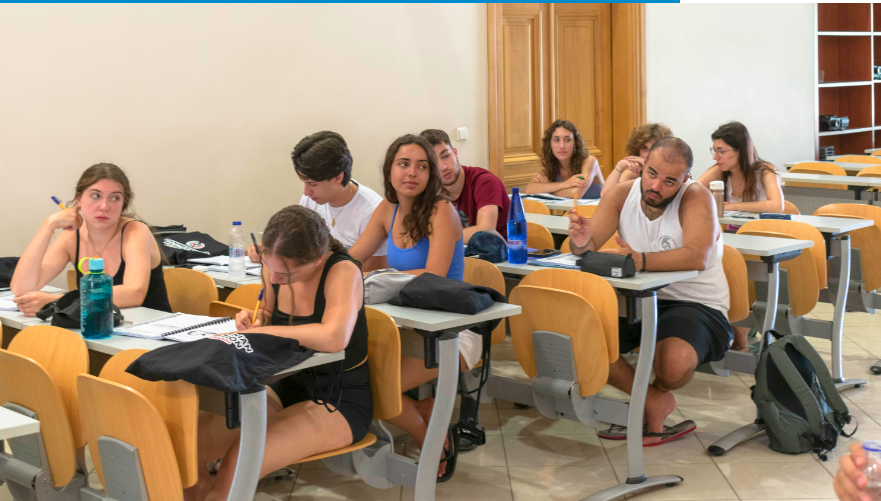
The most important thing for her is that she currently feels she can speak the language without thoughts about grammar, syntax, and words getting tangled in her mind. “I hope and want to be one of the diaspora Greeks in Canada who continue to speak Greek,” she tells “K.”
Both teachers and students acknowledge that besides the need for learning, there is also the desire for exploration. The department, in collaboration with the Pan-Messinian Federation of USA and Canada, has organized visits this year to Epidaurus, Ancient Olympia, the Palace of Nestor in Pylos, Ancient Messene, Taygetos, Nafplio, Mycenae, Methoni, and Koroni. In fact, before arriving at the university dorms where they are staying, the students first visited the Acropolis.
“The students have the opportunity to achieve what the Germans call ‘Landeskunde,’ meaning knowledge about the culture, geographical conditions, and historical developments of the country, thus combining learning with the places where significant historical events of Greek history took place,” notes George Andreomenos, professor of Modern Greek Literature in the Department of Philology and dean of the School of Humanities & Cultural Studies at the University of the Peloponnese.
Summer School for Diaspora Greeks: They come not knowing the alphabet, they leave reading Seferis-5
The summer school has become an institution as it has been held annually, except during the pandemic, for the past 16 years.
Immersion in the language
In recent years, the program has been integrated into the University of the Peloponnese’s Lifelong Learning Center, which strives to upgrade its content to be even more academically oriented and to ensure the continuous engagement of diaspora Greeks with the language.
Summer School for Diaspora Greeks: They come not knowing the alphabet, they leave reading Seferis-6
In addition to classes at the University, the students this year will visit Epidaurus, Ancient Olympia, the Palace of Nestor in Pylos, Ancient Messene, Taygetos, Nafplio, Mycenae, Methoni, and Koroni.
For this reason, the teachers maintain communication with many students even after the summer classes end, encouraging especially the beginners to continue by taking the Greek language proficiency test, which corresponds to the “lower” level in English.
“When they leave, they tell us they made friendships that will last a lifetime. This is a small gift for us who have been teaching these classes with much love for so many years,” concludes Ms. Volonaki.
*Photos: Pan-Messinian Federation of America and Canada.
Ask me anything
Explore related questions
